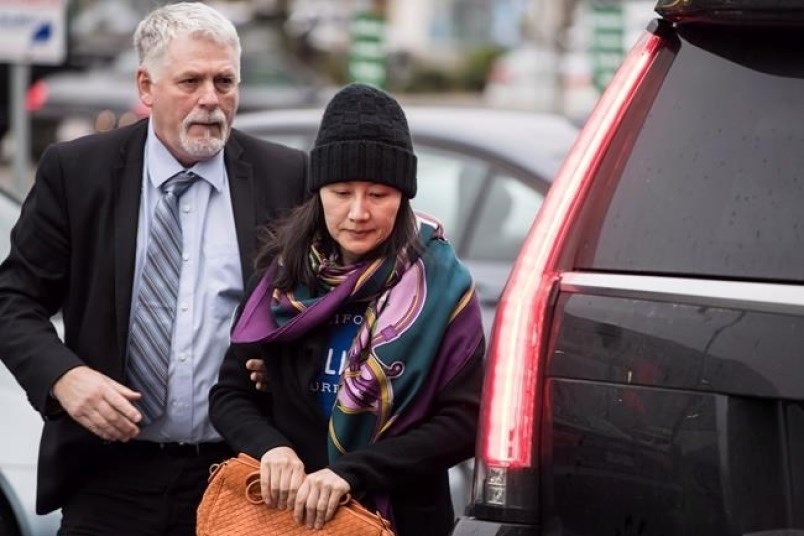The Meng Wanzhou extradition hearing proceedings continued Tuesday with defence lawyers telling the court that Border Services officers were able to compel a collection of key information without informing Meng she has been arrested.
In a couple of surveillance video clips submitted by the defence (as provided by crown prosecutors), Meng was seen talking with two CBSA officers — with one officer whose role was originally to take notes not doing so in the videos.
Defence lawyer Richard Peck said the officers were able to compel Meng to release her passwords for her electronic devices — as well as the fact that her company, Huawei Technologies Co. Ltd., had an office in Iran.
The questioning veered beyond the jurisdiction of an entry inspection by border services agents, Peck argued.
“Notwithstanding Ms. Meng’s multiple requests, no one answered her,” Peck said. “No one told her she was a subject of arrest, and no one told her the warrant was requested by the United States.”
Peck notes that an RCMP officer finally arrested Meng and informed her of the case against her — as well as her right to counsel — at 2:15 p.m. on Dec. 1, much later than the border agents’ interrogation between 1 and 2 p.m. and some three hours after she was detained right after getting off the plane in Vancouver.
Peck further added that Crown prosecutors will argue Meng’s processing is all part of routine border operations, but circumstances in court submissions so far show that is not the case.
Meng’s defence pointed to email and communique submissions to court that showed American authorities wanting access to the secondary examination results of Meng by the CBSA (a request that Canadian authorities then referred to the need of an official verbal request from the US Department of Justice).
“I know [the prosecution] cleave to the claim that there’s nothing more than routine operations, that it’s done at airports throughout the world,” Peck told the court. “Routine-ness permeate throughout their submissions... [but] someone got off the plane and was immediately identified, had electronic devices seized... for collecting information on an upcoming court case; none of this is routine.”
The defence team concluded Tuesday morning’s session by noting it is not seeking to prove at this time that there was definitively an abuse of process by authorities to use border services powers to conduct evidence collection for a criminal case. However, the defence said it aims to prove at least “an air of reality” that an abuse of process could have taken place so that Canadian and U.S. authorities must disclose additional information surrounding Meng’s arrest and related correspondences.



